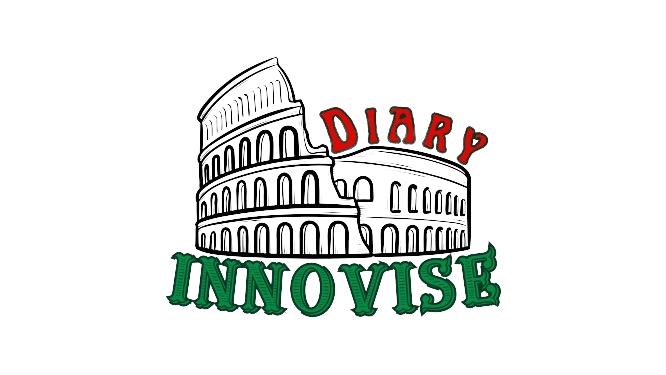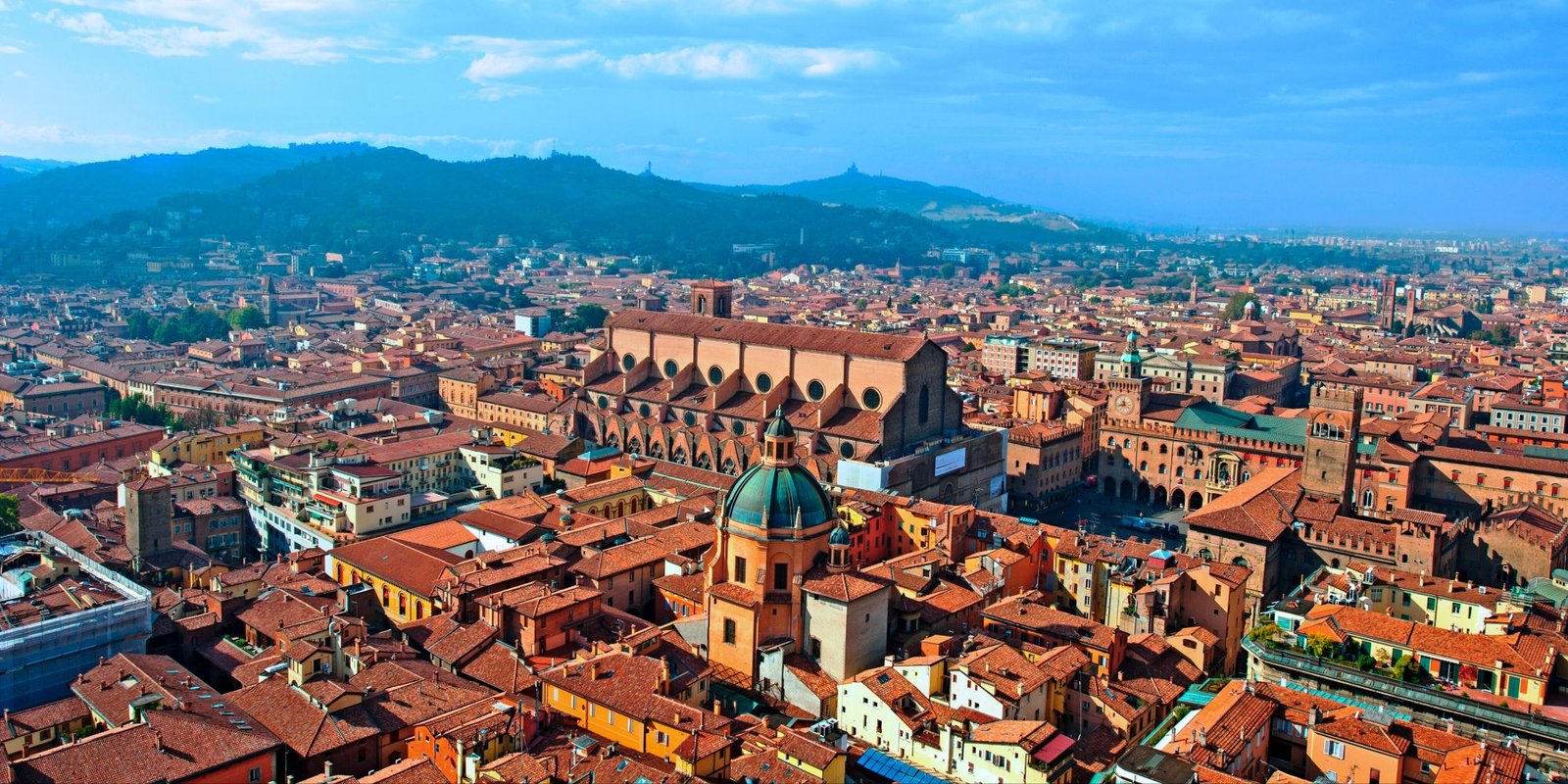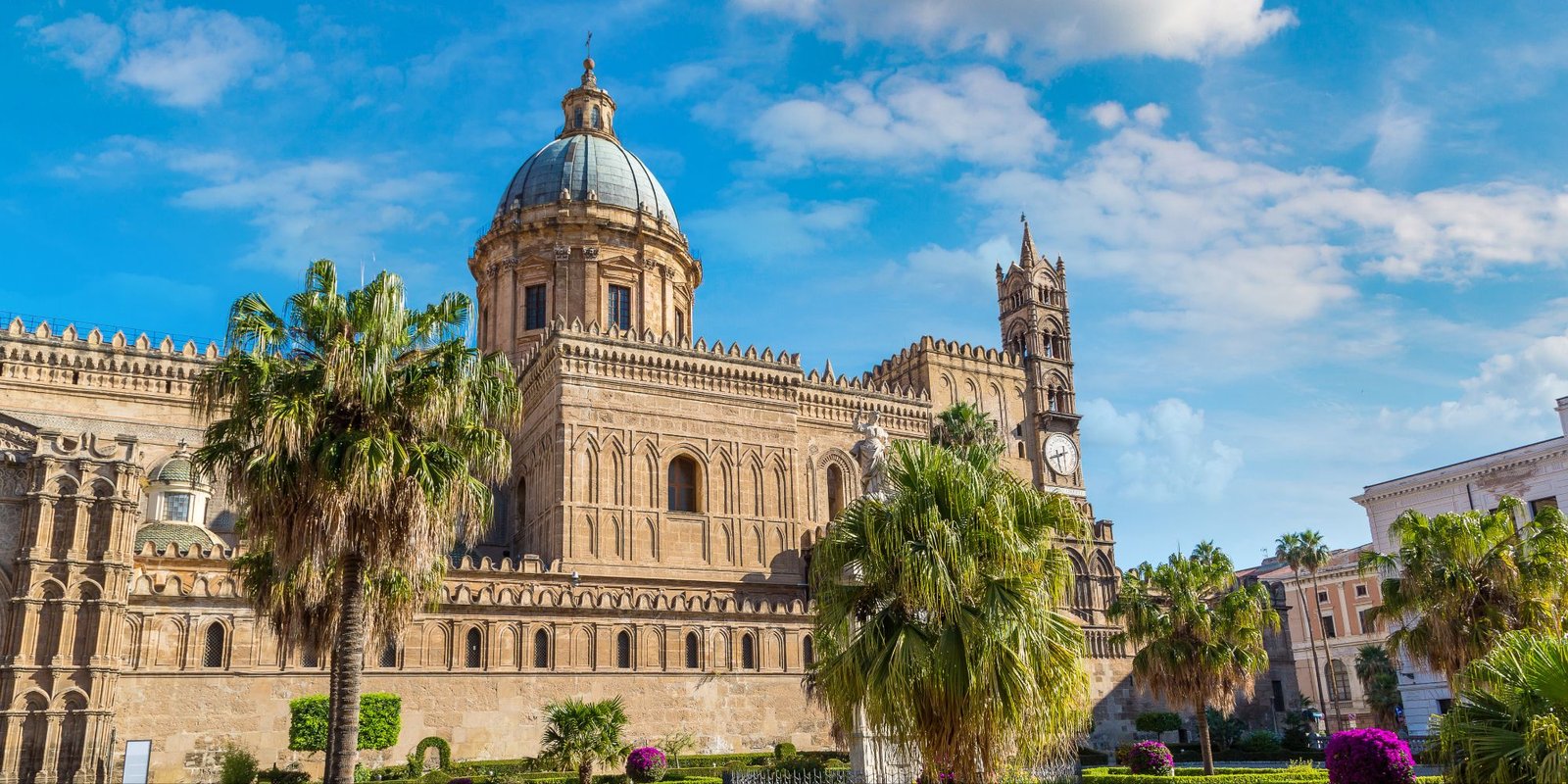Bologna is one of the most royal cities in Italy. This city is also known as a university city. Its wealth, from its natural form to its economic standards, is one of Italy’s. It is a unique seal of Northern Italy like the cities of Milan and Turin.
A touch of Italy’s unique thousand-year heritage permeates the cities of all regions in different ways. The heart of various ancient European civilizations started from these cities. The city of Bologna will be at the top of this list.
Bologna is one of the most royal cities in Italy. This city is also known as a university city. Its wealth, from its natural form to its economic standards, is one of Italy’s. It is a unique seal of Northern Italy like the cities of Milan and Turin.
A touch of Italy’s unique thousand-year heritage permeates the cities of all regions in different ways. The heart of various ancient European civilizations started from these cities. The city of Bologna will be at the top of this list.
The influence of different rulers from ancient, medieval and modern eras can be seen in every part of the city. Apart from this, the city is much more attractive in terms of natural beauty.
Every season of the year sees a significant number of tourists, which plays an important role in the tourism-based economy. Beyond Europe, Asia, Africa has surpassed the popularity of its tourism industry.
Today we will try to highlight the top 5 sightseeing places in Bologna city and analyze their various history and essential information.
Table of Contents
All About Bologna
Bologna is the capital and largest city of the Emilia- Romangna region in Northern Italy. It is the seventh most popular city in Italy, with about 400,000 inhabits and 150 different nationalities.
This city is known as the fat city for its rich cuisine. Also this is called the learned city because it is home to the oldest university in the world. This is the only Italian city besides Milan, Rome and Turin to have always been included in the list of the Globalization and world cities research network.
It was classified as one of the 100 world cities in 1998. Since then, it was the only one to exceed the level of sufficiency, having reached the Gamma level in 2016.
The total area of this is about 140.86 square kilometres and about 394,843 people live here. The city has been an important urban centre for centuries. In the middle ages, as a free municipality and later signoria, it was the largest European city by population.
It is famous for its towers, churches and lengthy porticoes. Bologna has a well preserved historical centre. A careful restoration and conservation policy which began at the end of the 1970s.
This is home to the oldest university of Bologna, established in AD 1088. The city has a large student population that gives it a cosmopolitan character.
In 2000, it was declared the European capital of culture. Then in 2006, UNESCO considered this city as the “City of Music” and became the creative city network. Many years later it recognized the lengthy porticoes of the city as a world heritage site.
Bologna is an important agricultural, industrial, Financial and transport hub, where many large mechanical, electronic, food companies have their headquarters as well as one of the largest permanent trade fairs in Europe.
Bologna is the first Italian city and the 47th European city in terms of its economic growth rate. Many famous news portals are called Bologna, the best city in Italy for overall quality of life.
Top 5 places to visit
1. Piazza Maggiore
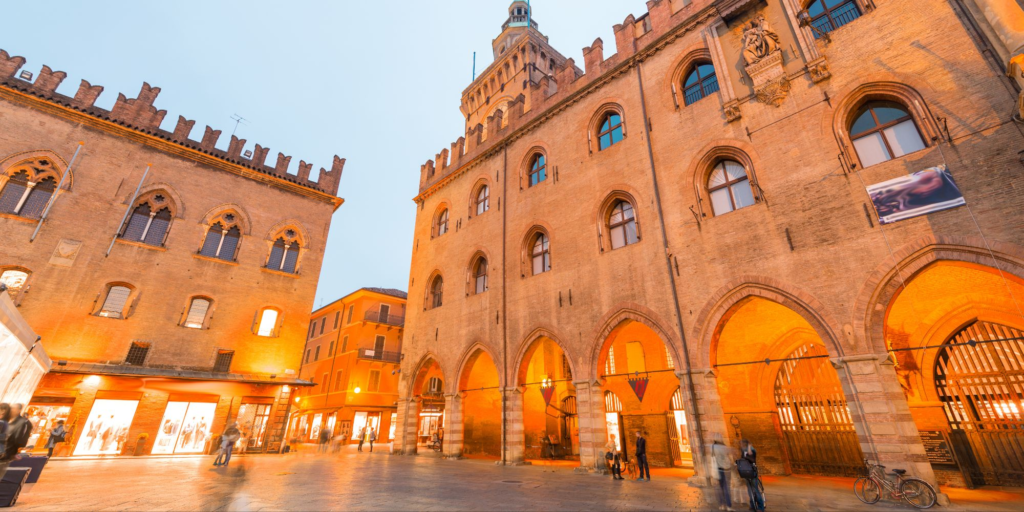
This is the main square, considered as the heart of Bologna. It is lined with medieval and Renaissance Architecture, arcades, cafes and historical buildings.
It is a great place to soak up the city’s atmosphere. It measures 115 metres, length 60 metres. In this square, there is lots of separate architecture that will surprise the visitors.
First of all visitors will see the Basilica di San Petronio. It is a minor basilica of the Archdiocese of Bologna, located in Emilia Romagna. This is dedicated to the patron saint of the city and Saint Petronius, who was the bishop of Bologna.
In the 15th century the construction began in 1390 and transferred to the diocese in 1929. Then last finally consecrated in 1954. It has been the seat of the release of Bologna’s patron saint only since 2000.
Then in this square visitors will see the Palazzo d’Accursio. This is a palace once formulated to house a major administrative office of the city of Bologna. It is located in Piazza Maggiore, the city’s town hall. Home to the Civic Art collection, with paintings from middle ages to 19th century.
Then last, the Fountain in Neptune, an epic monumental Civic Fountain located in the Eponymous square. This is a model example of the mannerist taste. This is courtly elite in the mid 16th century. This was built in 1563-1566 and designed by Tommaso laureti and Giam Bologna.
2. Le Due Torri (two towers)
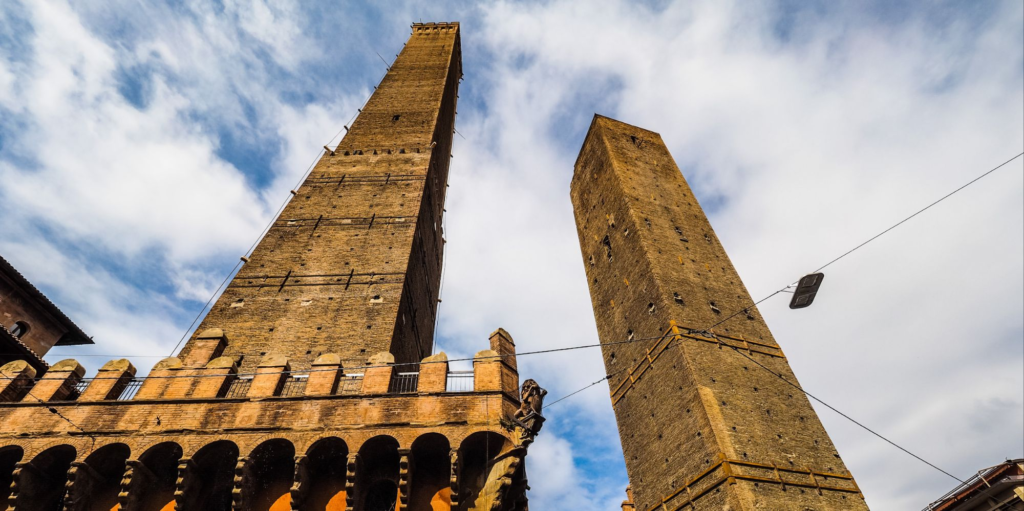
The actual feature consists of two towers. This is the most prominent architecture of Bologna. They are located at the intersection of the roads that lead to the five gates of the old ring wall.
The taller one is called the Asinelli and the smaller tower with a stream lean is called the Garisenda. Their hams derive from the families which are traditionally credited with having the tower between 1109 and 1119. Visitors can explore these beautiful towers so closely.
3. Basilica di Santo Stafano
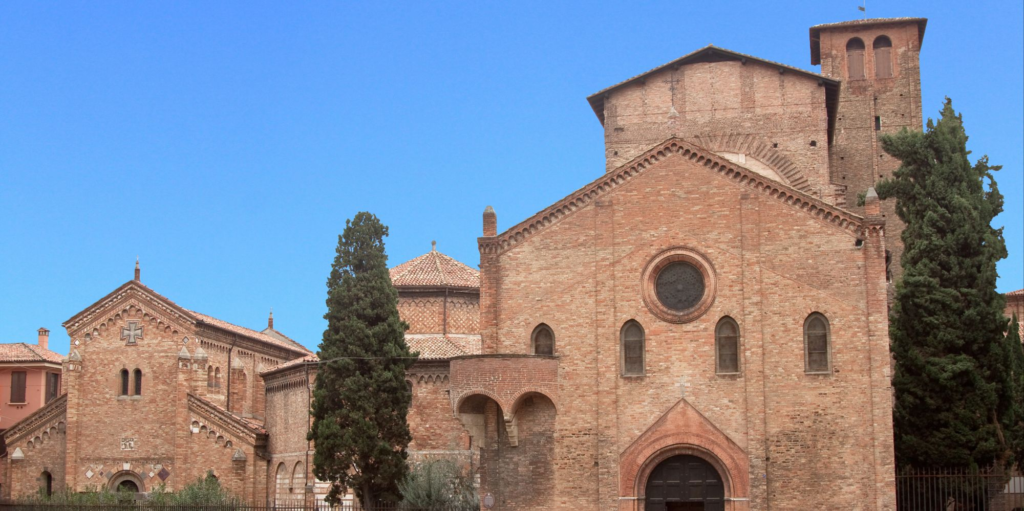
This encompasses a complex of religious edifices in the city. It is located on Piazza Santo stefano. It is known as Sette Chinese.
7 churches have the dignity of this basilica but originally 8 churches are linked together. It is a fascinating place to explore and learn about Bologna’s Christian history.
4. Bologna’s Portici
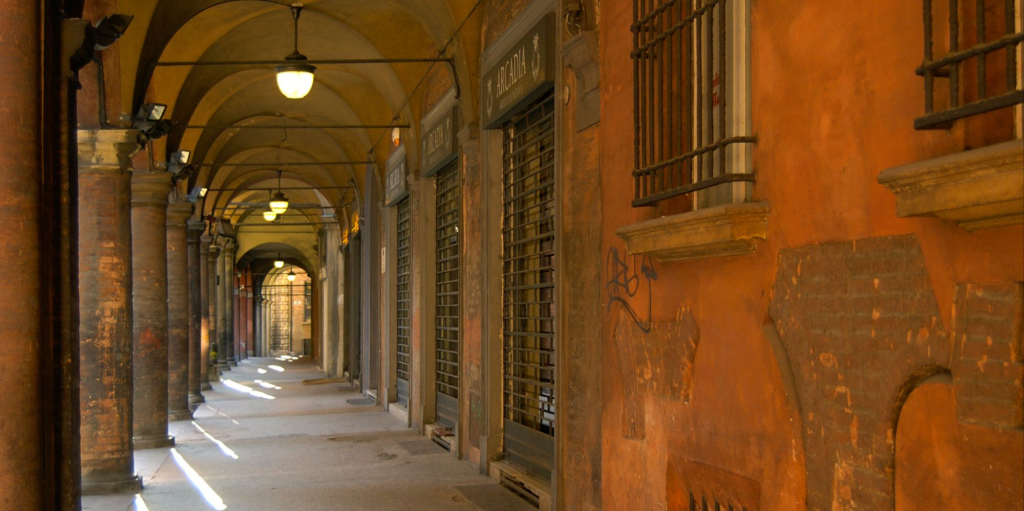
This represents an important architectural and cultural heritage for the city and symbol of it together with wonderful towers.
There are no other cities in the world that have as many porticoes as Bologna. All together porticoes measure almost 40 kilometres in length in the historic centre along the city which reaches 62 kilometres.
Due to their artistic cultural relevance, from 2021, a part of the Bolognese porticoes. It is part of the world heritage site of Bologna, declared by UNESCO.
5. Sanctuary of the Madonna di San Luca
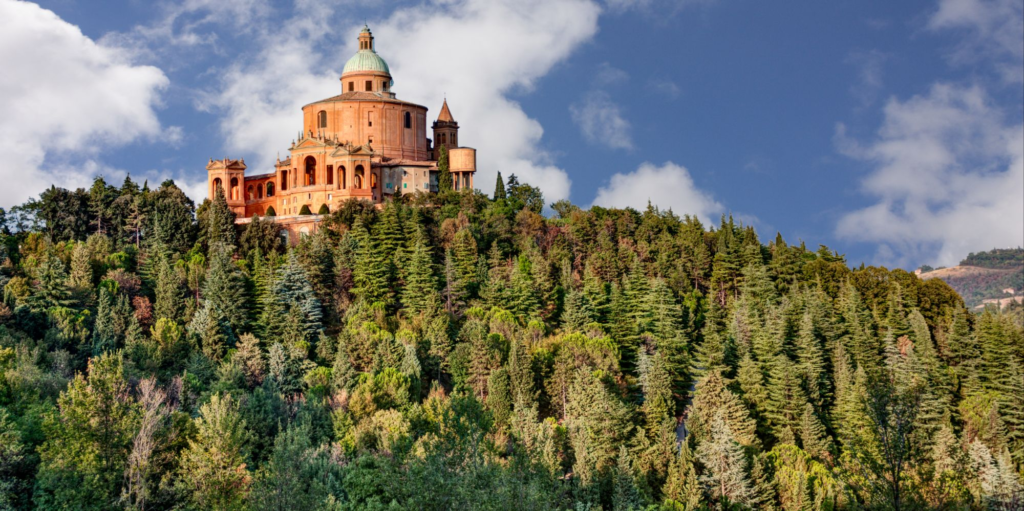
This is a Basilica church in Bologna of northern Italy. It is located on a top forested hill, about 300 metres above the city plain, just southwest of the historical centre of the city. The construction period was 1194-1765 and the architect was Carlo Francesco Dotti Donato Fasano.
Tips from our guide
1. Various events & concerts are usually organized in Piazza Maggiore during the summer. You can enjoy them. Besides, here you can enjoy different flavours of coffee and also take pictures with these amazing creatures.
2. The thing to know about le Due Torri is its staircase. Here you have to walk up about 498 steps. So wear comfortable shoes as much as possible.
3. Of course, visit all the churches in the city complex. You can notice unique features in all of them.
4. The roads and vehicles of the city are very beautiful. The city can be seen very easily by these. Be aware of these fares and travel
5. There are many interesting restaurants and hotels here. Of course Rokal will test the cooking of different positions in them.
6. The sunrise view from the sanctuary of the Madonna di San Luca is very beautiful. If you have enough enthusiasm, you can climb the roof of the church, it will give you a different feeling
Conclusion
The city of Bologna is one of the top listed cities in Italy‘s beauty diaries. It has become more structured and unique over the centuries. As Rome is the best in its architecture, as Milan is the best in its modern urbanization, this city is also the most beautiful city in its architecture, economy and other aspects.
Before we have discussed about Rome, Milan, Turin, Florence, Venice, Genoa and Naples.
In today’s article we discuss the appearance of Bologna, once considered the most peaceful and beautiful city in Italy. At the end of the article, some important tips have been tried to be given to the tourists. All the information will enhance a tourist’s travel experience.

